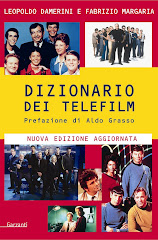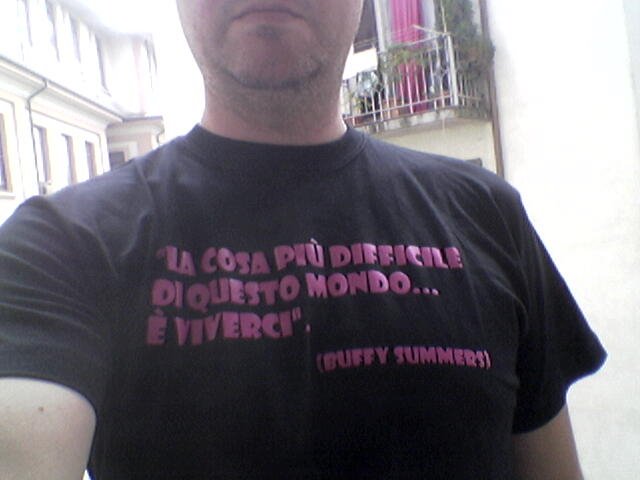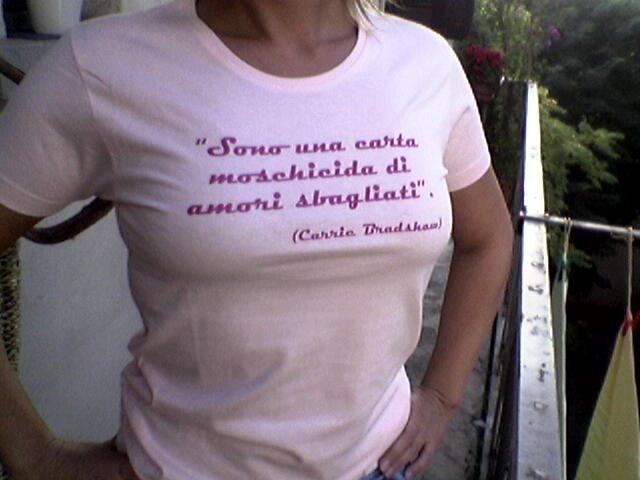NEWS - I 10 comandamenti di Netflix! Bigino pronto all'uso della piattaforma dello streaming che sta tramortendo HBO e le altre pay Usa (in attesa dell'arrivo in Italia)
Articolo tratto da Uproxx.com
We talk a lot about Netflix
around here, and for good reason: It’s become, for many of us, a huge
part of our lives. Most of the discussion, however, revolves around the best TV shows on the streaming service, the latest additions to its library, or even the threat of price hikes.
What we don’t discuss as often, however, are the origins of Netflix,
and how it maintains its competitive edge over rivals like Amazon Prime
and Hulu, and even HBO.
Netflix CEO Reed Hastings hasn’t been shy about his rivalry with HBO.
In fact, he announced last February that his goal is to “become HBO
faster than HBO becomes us,” and even kidded last week that HBO CEO
Richard Plepler’s HBO Go password was “Netflix bitch.”
Netflix has 33 million subscribers now, and the service hopes to double
that number in the near future, as we all move away from our
traditional TV sets and toward Internet streaming. My guess is that,
though it has occasionally suffered setbacks in the past, Netflix will
accomplish this goal. Sooner, rather than later.
But before they accomplish 66 million subscribers, let’s take a quick
look back at 10 interesting facts about Netflix, and how it got to
where it is today.
1. Reed Hastings was inspired to start Netflix after racking up a $40 late charge on a VHS copy of Apollo 13. So, uh, thanks Ron Howard! (Wikipedia)
2. In order to determine what television series it should be
purchasing — especially for the European markets — Netflix monitors
Bittorent and other pirating sites to see what is popular before making
decisions. (Forbes)
3. Netflix, which had purchased the licensing rights to House of Cards,
brought in David Fincher to run the show, and Kevin Spacey to star in
it because Fincher and Spacey movies were very popular on Netflix.
(Fincher, actually, had originally wanted Eric Roth in the title role). (Wikipedia)
4. In 2000, CEO and co-founder Reed Hastings approaching Blockbuster
about a partnership, and the Blockbuster CEO laughed in their face. In
fact, Blockbuster even had a chance to purchase Netflix for $50 million.
I don’t know how much Netflix is worth now, but its third quarter
earnings in 2013 were $1.1 billion, while Blockbuster is bankrupt. (CNet)
5. As of 2009, Netflix had around 58 warehouses nationwide, but most
were hidden, disguised, and could not be found on a map. Likewise,
Netflix delivery trucks are also disguised. (The reason is because of
the number of discs being held in warehouses, and because Netflix
doesn’t want anyone to drop their discs off at the warehouse locations).
(Chicago Tribune)
6. Netflix chief content officer Ted Sarandos believes that the
broadband caps that Canadian ISPs put on their subscribers is as bad as
in third-world countries, and should be considered “almost a human
rights violation.” As a result of the caps, the default streaming option
for Canadian Netflix subscribers is for non-HD streams. (Gigaom)
7. During peak times — between 9 p.m. and midnight — Netflix accounts for 33 percent of North American’s downstream traffic. (CNet)
8. In 2008, Netflix stated that Napoleon Dynamite was the hardest movie to recommend to viewers based on their previous likes and dislikes. (NYTimes)
9. The reason why Netflix envelopes are rectangular instead of square
is because the USPS charges more for square envelopes, enough more than
in 2011, postage would’ve cost Netflix more than $225 million in
additional charges. (Quora)
10. Netflix uses huge teams of people to watch films and tag every
aspect of each movie from director to actor to genre to what kind of
ending, to how sexually suggestive, gory, or romantic each film is, and
even how moral the lead character is. They categorize each “quanta” — or
element of the movie — using a document they call Netflix Quantum
Theory, which has allowed them to basically reverse engineer Hollywood.
In doing so, Netflix has created a whopping 76,897 genres (at least),
designed to best recommend movies to its viewers. Why? Because the
better Netflix knows you, the better it can tailor to your likes and
dislikes, and the more likely you’ll stick around. (The Atlantic)
sabato 1 febbraio 2014
Iscriviti a:
Commenti sul post (Atom)
"Il trivial game + divertente dell'anno" (Lucca Comics)

Il GIOCO DEI TELEFILM di Leopoldo Damerini e Fabrizio Margaria, nei migliori negozi di giocattoli: un viaggio lungo 750 domande divise per epoche e difficoltà. Sfida i tuoi amici/parenti/partner/amanti e diventa Telefilm Master. Disegni originali by Silver. Regolamento di Luca Borsa. E' un gioco Ghenos Games. http://www.facebook.com/GiocoDeiTelefilm. https://twitter.com/GiocoTelefilm
Lick it or Leave it!












.jpg)
















1 commento:
Ma arrivera' nai????
Posta un commento